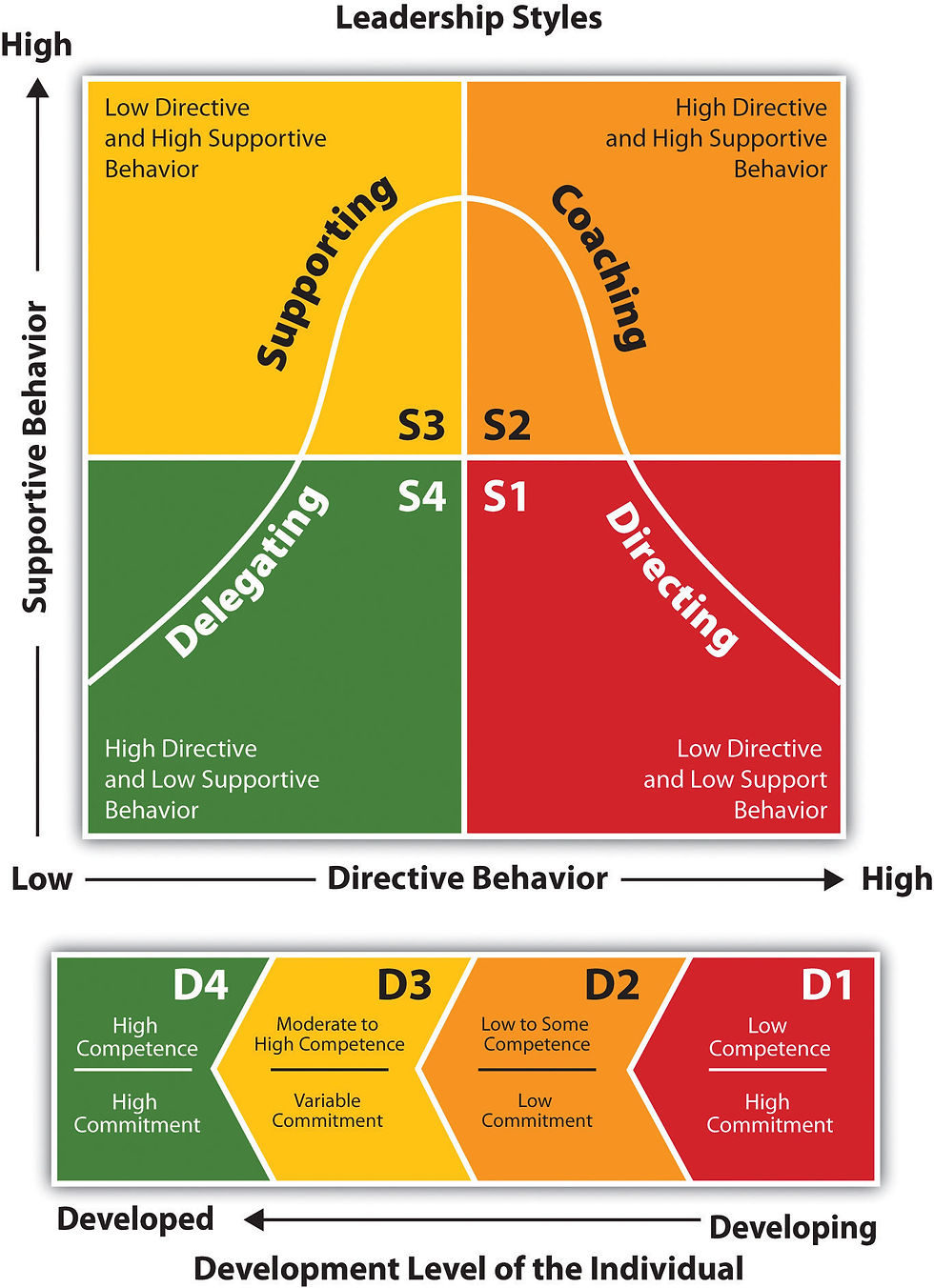One leadership superpower
- Louisa Fryer
- Jun 14, 2024
- 4 min read
Updated: Jun 24, 2024

Are you a line manager? Would you like your direct reports to have a greater sense of responsibility? Would you like your direct reports to be more confident? Would you like your direct reports to think more for themselves? If you answered yes, then this blog is for you.
Why am I sharing this?
I recently read content from Gustavo Razzetti at Fearless Culture (available on Substack) which hit me between the eyes. It's titled 'Why no-one listens to a leaders advice'.
As I read Gustavo's blog, I reflected on some of the conversation's I have had in 1:1's, either as a direct report, or as a line manager. How many times have I internally resisted unsolicited advice given to me, and how many times had I offered advice which I could sense was somehow jarring for the other person....
What's the opposite of giving unsolicited advice?
I'm proposing that there is a simple leadership superpower which is the opposite to giving advice. Carry on reading to find out more and to apply practical tips in your upcoming 1:1's this week.
This is an invitation to pause, reflect and try a different approach
As good line managers we have 1:1's with our direct reports. Most 1:1's are an hour, or sometimes 90 minutes. Usually there are decisions to be made, solutions to come up with and actions to be agreed upon. And, as we are probably flying from one meeting into another, it's understandable that we're on auto-pilot.
Everyone's auto-pilots behaviours are different. I would put money on it that for many of us giving unsolicited advice would be listed. In other words, telling our direct report what to do.
Sometimes, telling a direct report what to do is a valid action. For example, when reflecting on the Situational Leadership model, see below, where a direct report is building competence (D1) they'll need advice. They need to be told what to do.

But what about when they have some competence, but they haven't got the confidence yet? In other words, they're in the D2 and D3 land. Or what about when they've mastered the task and in D4? I believe this is the moment when we as leaders, can fall into the trap of giving advice.
Why is giving unsolicited advice so wrong?
I know it's only natural to want to help others, especially when the clock is ticking in a 1:1. But there is some interesting research which suggests that giving unsolicited advice is a leadership turn off. I recommend reading the whole article but for me, there were three statements which packed a punch:
Q: So, to avoid giving advice, what is a leader's superpower?
A: Listen with curiosity... which leads to asking open questions.
This is key because when you ask someone an open question, even if they don't like it, they will automatically search for an answer to it, which means you don't need to give advice.
Listening with curiosity is going to mean ignoring the urge to talk, or jump in and take over.
Top tip - To help with this, lets try using the power of our minds at the start of a 1:1.
Imagine that urge to talk, or jump in and take over had a dial on it. Turn it down to 1.
Imagine a dial on feeling calm and a sense of curiosity. Turn that up to 10. Breathe into that state and stay there.
Putting this superpower into action. Your secret mission for an upcoming 1:1....
Step 1 - Consciously turn up your calmness and sense of curiosity.
Step 2 - Pick your favourite open question from these options, or use all three... or make up your own.
Option 1 - What's your instinct telling you?
Option 2 - What are your options
Option 3 - Who has done this, or similar, before?
Step 3 - Instead of giving advice, find a way to naturally drop your selected open question/s into the conversation.
Step 4 - Observe your direct report problem solve and generate a stronger sense of responsibility, knowing it will lead to confidence.
You might be wondering, sounds good Lou, but what if they say 'I don't know, what do you think?'. Gently swing it back to them by saying something like 'I guess there are a few ways, what's coming to mind?'. Patiently give them the space to think it through for a few moments.
I know it is hard to sit on telling someone what we think they should do, whether or not they have any competence. It is so much quicker to just tell them. But it's so important to replace advice with open questions when our direct report does have the competence they need.
Open questions activate problem solving in our brains, which is creativity, and a greater sense of responsibility in our direct report. This turns into confidence, which is what we want - confident direct report's who think for themselves and feel responsible.
Wouldn't you agree that asking open questions is far more motivating than giving unsolicited advice?
Initially, it may seem time-consuming to start with, but that's true when developing new habits. It will get easier with practice, and they will become accustomed to it too.
Ask more, tell less.
Reflecting back, when I tried this technique with my direct report's, it didn't take long for them to know what I was going to ask, which meant they did more thinking ahead of the conversation. I started with simple questions, like the ones above and didn't look back when I could see the empowerment this approach offered to my team.
It's true what they say 'small hinges open big doors'. Questioning is like a hinge, a simple coaching skill that opens up conversations and problem solving.
In addition to the suggestions above, here's a great resource from the brilliant book Co-Active Coaching both of which I recommend for developing empowering coaching skills.
Thanks for reading.
Louisa x









Comments